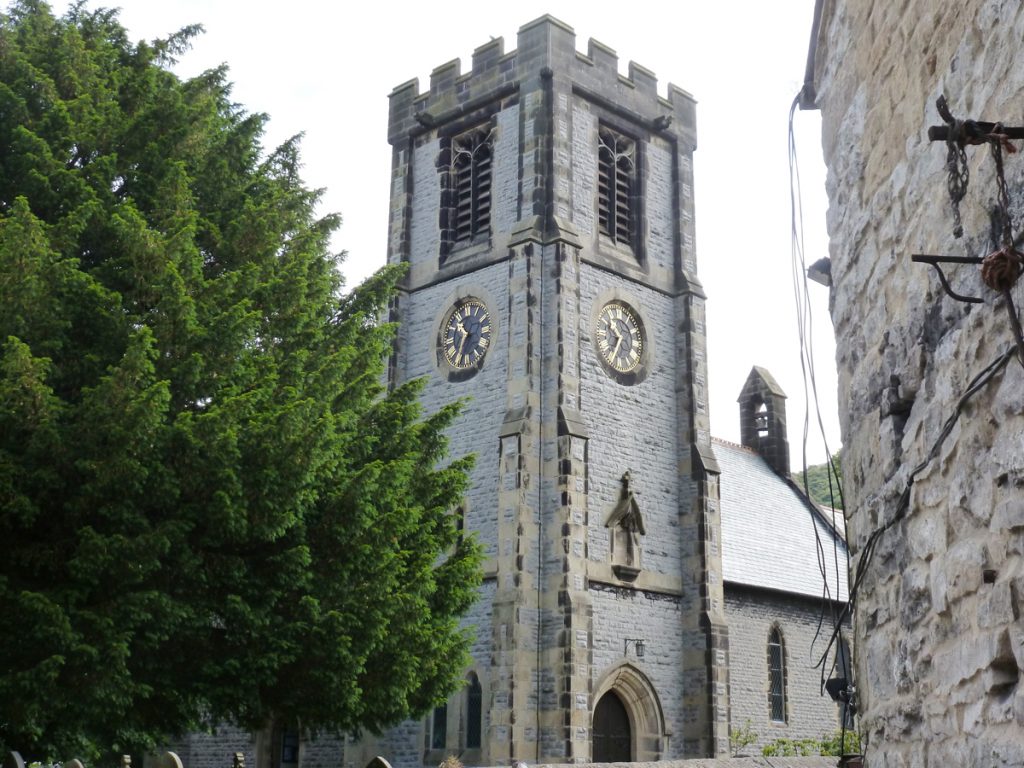Bradwell St Barnabas – About Us
Welcome!
At St Barnabas we feel privileged that the church and its churchyard have been part of community life in Bradwell for many generations. We treasure our connections with the community, through traditional services such as Christmas and Remembrance, as well as through activities like Community Cafés, Ladies’ Fellowship Group and the popular St B’s Baby Group.
Whether you have just moved to the area, are a visitor to the village or have lived in Bradwell all your life, we hope you will feel welcome at St Barnabas. We meet most Sundays in church for worship, and share our Vicar, Louise, with St Peter’s, Hope and St Edmund’s in Castleton.
Our worship style is fairly traditional; most services include communion. However we have introduced a Worship Together service on the first Sunday of each month, that is short, relatively informal, and encourages interaction. This service is still evolving, and we’d love your feedback. We also have one service a month, on the fourth Sunday, that is a Benefice Celtic based service, which takes place outdoors from April to September and indoors in chilly months.
We seek to extend a warm welcome to all those who visit, whether joining us for worship or simply taking time to enjoy the peace and tranquility of St Barnabas during the week. We pray that all those who visit will find something of God in our church community, in the building itself or in its surrounding grounds. The church is open every day from 10am-4pm.
We feel strongly that St Barnabas belongs to everyone, as God welcomes all. If you have suggestions about how we could improve our service and witness to the community, or could better meet your needs, we would love to hear from you.
If you would like to receive our Benefice weekly newsletter via email, which contains details of services, news and notices, please email Jane (Churchwarden) on: churchwarden.stb@gmail.com or phone 01433 621172.
You can also use the links below to find out details of our service times and all our events.
Monthly letter from our Vicar.
Louise’s Monthly message. March 2026 Lent – Me or us?
I’m guessing that most of us will be able to look back on times when we have valued being on our own, and times when we have valued sharing with others. And both can play an important role in personal lives, our faith journeys, and our community lives.
Culturally, we tend to have a very much more individualistic attitude to life than many around the world, so ‘personal space,’ or ‘doing things my way,’ tend to have a greater importance for us than for many cultures. I remember many years ago, an Indian telling me of his first visit to the UK, in his forties. His host showed him to his room, and left him there, inviting him to come downstairs when he was ready. He explained how he felt absolutely terrified, as in all of his life up to that point he had never been in a room alone. And I remember an African on a course I attended, explaining how he could not tell us what he thought about something, as he had to discuss it with his community first, and he would then share with us the view of his community.
Christian scripture and Christian spirituality, have many examples of the value of being alone. The gospels tell us of how Jesus often went off on his own to pray, and his public ministry began with a period of 40 days in the wilderness, wrestling alone with the temptations that he would face. Throughout Christian history, Christians have sought out solitude as a way to encounter God more deeply through prayer or meditation.
But even though solitude has a treasured place in scripture and tradition, Christianity has always taught that we belong to one other; we belong with one another, because we all belong to God. Our times of solitude are not instead of community; they are to equip us to live better in community. The apostle Paul uses an image that has become well known; the image of all those who seek to follow Christ as being ‘one body,’ made up of lots of individual parts, each with their own particular characteristics and needs, yet all dependent on one another and only able to function fully and effectively when they function as ‘one body.’ When one part of the body suffers, Paul teaches, the whole body suffers, and when one part of the body rejoices, the whole body rejoices.
My prayer for us all this month, is that we would all make space, individually and together, to reflect on all those, near and around the world, who are connected with our lives in any way – we might begin by looking at the food we eat or the clothing we wear and finding out more about where it came from, and what impact it has had on others along its journey to our plate or our wardrobe. And my prayer is that we would all draw closer to one another and to the God who is God of all.
Yours in Christ,
Louise Petheram
rev.louise.p@gmail.com 01433 621918
If you would like to sign up to receive the regular newsletters from churches and Christian groups across Hope Valley, please go to
https://mailchi.mp/f29b1286b3df/2t1gk3uwy2
or email me and I can sign you up.
.

